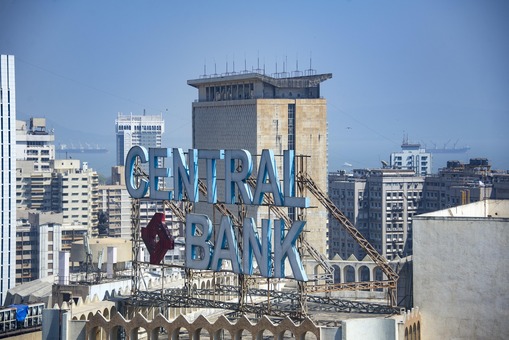Tax guide for Americans in Colombia

Known for its rich culture, diverse landscapes, and growing economy, Colombia has become an attractive destination for expatriates and retirees from around the world.
Understanding the tax system in Colombia is crucial for anyone considering moving to or living in the country, whether temporarily or permanently.
Resident vs. non-resident of Colombia
The Colombian tax system distinguishes between residents and non-residents, and this distinction plays a crucial role in determining an individual's tax liability.
- Residents of Colombia are subject to tax on their worldwide income. This means that if you are considered a resident for tax purposes, you must declare and potentially pay tax on income earned both inside and outside Colombia.
- Non-residents, on the other hand, are only taxed on their Colombian-sourced income. Income earned outside of Colombia is generally not subject to Colombian tax for non-residents.
The distinction between these two categories is important as it affects the amount of tax you are liable to pay and the type of income that is taxable.
Who can be considered a resident of Colombia
The criteria for being considered a tax resident in Colombia are specific and include several conditions:
- If you spend more than 183 days in Colombia within a 365-day period, continuous or not, you are considered a tax resident.
This period does not have to be within a single calendar year; it can be spread over two years.
If the 183-day period ends in the second year, you will be considered a resident for that second year. - Colombian nationals may also be considered tax residents under certain conditions, regardless of the time they actually spend in Colombia.
These conditions include deriving more than 50% of their income from Colombia, managing more than 50% of their assets in Colombia, or having more than 50% of their assets physically located in Colombia.
In addition, if the tax authority (DIAN) requests proof of tax residence in another country and this is not provided, or if the person has a tax residence in a tax haven, they may be considered a resident. - The presence of a spouse or family member in Colombia for more than 183 days in a 365-day period may also contribute to establishing tax residency.
Don’t overpay the IRS! Discover 15+ key tax breaks for US expats

Types of taxes and tax rates in Colombia
Colombia's tax system includes several types of taxes, each with its own rates and regulations. Understanding these taxes is essential for anyone living or doing business in Colombia.
Personal income tax rates
In Colombia, personal income tax is levied based on an individual's residency status. Tax rates vary according to the type and amount of income.
Residents are taxed on their worldwide income. Income is divided into different categories, such as earned income, investment income, and non-work income. Tax rates for residents are progressive, i.e. they increase with the level of income.
Colombia’s resident income tax is progressive and calculated using income bands set in tax units (UVT/TU). Some English summaries label Colombia’s tax value unit as ‘TU’; in official DIAN materials it is commonly referred to as UVT.
Rates and thresholds can change by year, so always confirm the current bands for your filing year. For example, in the tax year 2026, the rates are as follows:
| Taxable income (TU*) | Tax rate (%) |
| 0-1,090 | 0 |
| 1,090-1,700 | 19 |
| 1,700-4,100 | 28 |
| 4,100-8,670 | 33 |
| 8,670-18,970 | 35 |
| 18,970-31,000 | 37 |
| 31,000 and above | 39 |
*In December 2006, the Colombian government approved a reform of its tax system.
Colombia expresses many tax brackets and thresholds in the UVT (Unidad de Valor Tributario), an annually-updated tax value unit set by DIAN. For reference: 1 UVT = COP 47,065 (2024), COP 49,799 (2025), and COP 52,374 (2026).
Non-residents are taxed only on Colombian-source income, but the rate depends on the type of income (for example, some categories are subject to withholding, and non-resident dividend taxation is commonly summarized separately). The tax rate for non-residents is generally a flat rate of 35%.
Local income taxes
In Colombia, local income taxes are relatively simple compared to other countries:
Unlike many other countries, Colombia does not levy local income taxes. This means that individuals and companies do not have to pay additional income taxes at the municipal or departmental level.
While there are no local income taxes, other types of local taxes may apply, such as property taxes, industrial and commercial taxes (ICA), and urban development taxes. These taxes are levied by local governments and vary depending on the region and the specific circumstances of the taxpayer.
Capital gains tax
In Colombia, capital gains tax is levied on gains from the sale of certain assets, such as real estate, stocks, and bonds. The rate for this tax is usually set at 15% but can vary depending on the type of asset and specific circumstances.
Value Added Tax (VAT)
Value Added Tax, commonly known as VAT, is a widely used consumption tax in Colombia, which is levied on most goods and services. The standard VAT rate is 19%, which applies to a wide range of products and services.
However, there are exemptions with reduced or zero rates for essential items such as basic foodstuffs, and health and education services.
Equity tax
Wealth tax (sometimes referred to as ‘equity tax’) applies based on net worth (assets minus liabilities) and is measured using UVT. For 2026, professional updates describe a lower entry threshold of 40,000 UVT and a progressive marginal rate structure starting at 0.5% and rising up to 5% for the highest net-worth ranges. Because rules can change, confirm the applicable threshold and brackets for your filing year.
The rate of net wealth tax is progressive, increasing with the amount of net wealth:
| Taxable base (TU*) | Tax rate (%) |
| 0-40,000 | 0 |
| 40,000-70,000 | 0,5 |
| 70,000-120,000 | 1 |
| 120,000-240,000 | 2 |
| 240,000-2,000,000 | 3 |
| 2,000,000 and above | 5 |
Inheritance tax
Inheritance tax in Colombia is an important consideration for individuals planning their estates. This tax is levied on the transfer of assets from a deceased person to their heirs or beneficiaries.
The rate of inheritance tax varies depending on the relationship between the deceased and the beneficiary, with closer relatives generally subject to lower rates.
The value of the estate, the type of assets involved, and the number of beneficiaries can all affect the amount of tax due.
Property tax
Property tax is an important aspect of local taxation in Colombia. This tax is levied on the ownership of real estate, including land and buildings.
The rate of property tax varies depending on the location and value of the property, with higher rates typically applied to properties of greater value or in more affluent areas.
Financial transactions tax
The Financial Transactions Tax in Colombia is a unique tax applied to certain types of financial transactions. This includes transactions such as bank transfers, withdrawals, and other movements of money through financial institutions.
The rate of this tax is relatively low, but it applies broadly to a wide range of transactions, making it a common consideration for individuals and companies managing their finances.
When are Colombian taxes due?
Understanding the deadlines for tax payments in Colombia is crucial to ensuring compliance and avoiding penalties. The Colombian tax year is based on the calendar year, running from 1 January to 31 December.
However, tax filing and payment deadlines can vary depending on the type of tax and the taxpayer's circumstances.
- Personal income tax: For individuals, the deadline for filing income tax returns is usually between August and October of the year following the tax year. The exact date depends on the last two digits of the taxpayer's tax identification number (NIT).
It's important to check the specific schedule published each year by DIAN (the Colombian tax authority). - Property tax: The due date for property tax payments varies by municipality, but generally falls in the first half of the year. Many municipalities offer discounts for early payment.
- Other taxes: Deadlines for other taxes, such as VAT, financial transactions tax, and stock tax, are set by specific regulations and may vary. Companies often have monthly or quarterly filing requirements.
Tax rate in Colombia compared to the US
Comparing tax rates between Colombia and the US reveals some interesting contrasts, particularly in how the two countries structure their tax systems.
| Category | Colombia (%) | United States (%) |
| Corporate tax rate | 31 | 21 |
| The top individual income tax rate | 39 | 37 |
| Standard VAT/GST rate | 19 | 0 |
| Capital gains tax rate | 15% | 0% / 15% / 20% (plus possible surtaxes) |
Types of income in Colombia
In Colombia, the tax system categorizes income into different types, each with its own set of rules and tax implications. Understanding these categories is crucial for accurate tax reporting and compliance.
Employment income
Employment income is one of the most common types of income in Colombia and includes all income received as a result of an employment relationship. This includes salaries, wages, bonuses, commissions and other similar benefits. Here are the main points to consider:
- Most forms of earned income are subject to income tax. The amount of tax depends on your total income and the tax bracket you are in.
- Employment income may be eligible for certain deductions, such as contributions to health and pension plans, which may reduce the tax base.
- Individuals must declare their earned income on an annual basis in their tax returns, including any additional benefits or allowances received.
Special savings deposits
Special savings accounts in Colombia are a unique financial instrument designed to encourage individuals to save.
Contributions to special savings accounts may qualify for tax deductions, subject to certain conditions and limits.
These accounts are often used for specific purposes, such as housing or education, and the tax benefits are aligned with these objectives.
The tax benefits are usually conditional on the funds being used for their intended purpose and remaining in the account for a specified period.
Contributions to the pension system
Contributions to the pension system in Colombia are an important aspect of retirement planning and have tax implications:
- Employees and employers are required to make contributions to the national pension system, which are deducted from the employee's salary.
- Individuals can also make voluntary contributions to their pension funds, which may offer tax benefits.
Dividend income
Dividend income in Colombia refers to income received from investments in shares of companies. This type of income is particularly relevant for investors and shareholders and has specific tax implications:
Dividends are usually distributed to shareholders from the profits of a company. In Colombia, the taxation of dividend income depends on whether the profits have already been taxed at the corporate level.
The tax rate on dividend income varies. If the profits were taxed at the corporate level, the dividend income may be taxed at a lower rate or exempt for the shareholder. However, if the profits are not taxed at the corporate level or are taxed at a lower rate, the dividends may be subject to higher tax rates when distributed to shareholders.
Individuals receiving dividend income must report it in their annual tax returns. The tax may be withheld at source or the individual may have to pay it when filing their tax return.
Interest income
Interest income is another important category of income in Colombia, generally derived from savings, investments, and loans. It includes income from bank deposits, bonds, and other interest-bearing instruments:
Interest income is generally taxable in Colombia. The tax rate depends on the type of interest and the taxpayer's total income.
Certain types of interest income may be exempt from tax or eligible for deductions, depending on the nature of the investment and the applicable laws.
Tax deductions for US expats in Colombia
For US expats living in Colombia, navigating the tax system involves understanding not only Colombian tax laws but also how they interact with US tax obligations. One key area is the availability of tax deductions, which can have a significant impact on overall tax liability.
Employment expenses
US expats in Colombia can benefit from deductions for certain employment-related expenses. These deductions are particularly important for those who are self-employed or who have incurred certain expenses related to their employment. Key points include
- Expenses directly related to the generation of earned income, such as work equipment, travel expenses, and training costs, may be deductible.
- For those who work remotely or run a business from home, a portion of home-related expenses such as utilities and rent may be deductible, subject to certain conditions.
Personal deductions
Personal deductions allow US expats in Colombia to reduce their taxable income through various allowable expenses and exemptions. These include:
- Medical and dental expenses that exceed a certain percentage of your income may be deductible.
- Tuition and related educational expenses for yourself or your dependents can sometimes be deducted.
- Contributions to qualified retirement accounts, such as IRAs or 401(k)s, may be deductible, providing a way to save for retirement while reducing current tax liability.
Interest paid on educational loans
For US expatriates in Colombia, the interest paid on educational loans can be a valuable tax deduction. This deduction is particularly important for those who have used loans to finance their own education or that of their dependents.
The deduction generally applies to interest paid on qualified student loans used for higher education expenses, including tuition, fees, and related educational expenses.
Interest paid on these loans can be deducted from your taxable income, potentially reducing your overall tax liability.
Personal allowances
Personal allowances, in the context of US expats in Colombia, refer to the standard deduction and personal exemptions that reduce taxable income. These allowances can have a significant impact on the overall tax calculation:
- Standard deduction: This is a fixed amount that US taxpayers can deduct from their income before income tax is applied. The amount of the standard deduction varies according to filing status (single, married filing jointly, etc.).
- Personal exemptions: While personal exemptions have been suspended in recent US tax reforms, they previously allowed taxpayers to deduct a certain amount for themselves and each of their dependents.
Social security in Colombia
Social security in Colombia is a comprehensive system designed to provide support and benefits to workers in a variety of circumstances, including retirement, health issues, and workplace injuries. Key aspects of the Colombian social security system include
- Mandatory contributions: Both employers and employees are required to make contributions to the social security system. These contributions cover pensions, health insurance, and labor risks.
- Health benefits: The system provides access to health services, including preventive care, medical treatment, and emergency services.
- Retirement benefits: Upon reaching retirement age, individuals who have contributed to the pension system are entitled to retirement benefits.
Colombian pension system
The Colombian pension system is an important component of the country's social security framework, which aims to provide income security for individuals in their retirement years.
Сolombia offers both a public pension system (Régimen de Prima Media) and private pension funds (Régimen de Ahorro Individual con Solidaridad).
To qualify for a pension, individuals must meet certain contribution requirements, including a minimum number of weeks of contributions and reaching retirement age.
The amount of the pension depends on the individual's salary history and the total number of contributions made during their working life.
Tax credits for expats in Colombia
For expatriates living in Colombia, understanding the tax credits available is essential for effective tax planning. These credits can reduce the amount of tax owed and avoid double taxation. Important considerations include
- Foreign Tax Credit: US expats can claim a credit for taxes paid in Colombia, potentially reducing their US tax liability and avoiding double taxation.
- Income Exclusion: Under certain conditions, US expats may qualify for the Foreign Earned Income Exclusion, which allows them to exclude a portion of their foreign income from US taxation.
- Housing Exclusion or Deduction: Expats may also qualify for exclusions or deductions related to housing expenses incurred while living abroad.
The tax treaty between the US and Colombia
There is no formal tax treaty between the United States and Colombia. This lack of a specific agreement has several implications for U.S. expatriates living in Colombia and Colombians living in the U.S., especially in terms of taxation and social security.
Most popular tax forms for US expats
For US expatriates living in Colombia, certain tax forms are particularly relevant for ensuring compliance with US tax laws:
- Form 1040: The standard form for filing individual income tax returns.
- Form 2555: Used to claim the Foreign Earned Income Exclusion.
- Form 1116: For claiming the Foreign Tax Credit on taxes paid in Colombia.
- FBAR (FinCEN Form 114): Required for reporting foreign bank and financial accounts if the total value exceeds a certain threshold.
Connect with our experts in an introductory call to explore how we make tax filing easy for US expats.
Book free consultationColombia tax forms for US expats
US expats in Colombia also need to be familiar with Colombian tax forms, including:
- Formulario 210: Used by individuals to declare income and assets and to calculate income tax owed in Colombia.
- Formulario 110: For businesses and self-employed individuals to file their income tax and complementary taxes.
- DIAN Online Platform: Many tax filings and payments in Colombia are now made through DIAN's electronic platform, simplifying the process for taxpayers.



